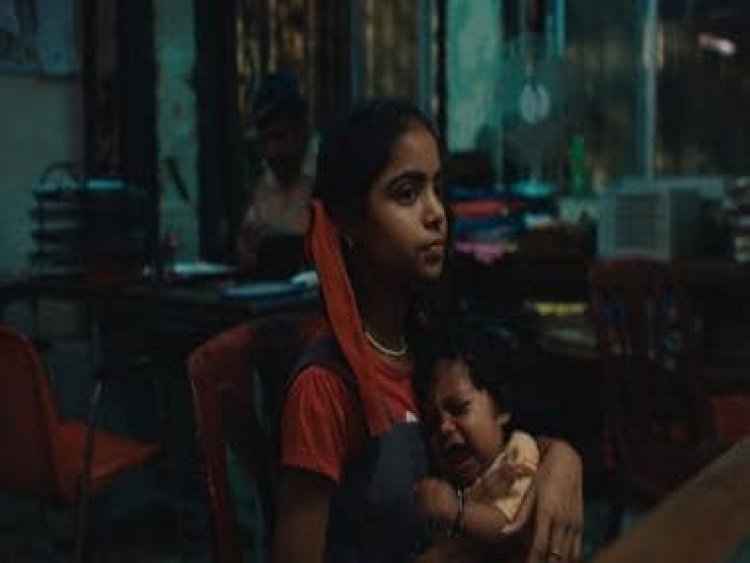Sundance 2023: Nocturnal Burger is a hyper-stylistic peek into the fractured female psyche
Sundance 2023: Nocturnal Burger is a hyper-stylistic peek into the fractured female psyche

Reema Maya’s enchanting Nocturnal Burger — one of the two Indian shorts competing at Sundance Film Festival this year — exists in the delicate middle-ground between telling and showing. In that, the film tells a deceptively simple story about an investigation of child abuse that unfolds over the course of one night at a seedy Mumbai police station. But at the same time, that’s not exactly the story Nocturnal Burger is concerned with showing for much of its 30-minute-long runtime. Eschewing the need to demand sympathy or blind rage, Maya doesn’t build her narrative in depicting the gruesome assault in graphic detail. Instead, the writer-director locates it in observing the point at which an isolated instance of sexual violence transforms into accumulated trauma.
The film’s action begins with an accusation: one night, Simi (Millo Sunka) brings Minu (Bebo Madiwal), a startled 13-year-old girl, and Sanu (Somnath Mondal), a 30-year-old man into a police station. Simi alleges that she saw the man force himself on the minor inside an auto-rickshaw. When she insists on registering a complaint against Sanu, it prompts a male cop and his junior female constable (Trupti Khamkar) to piece together the events of the night from the vantage points of the victim, the perpetrator, and the witnesses.
Like with Counterfeit Kunkoo, the filmmaker’s short that premiered at Sundance in 2018, Nocturnal Burger is an adept display of Maya’s stylistic eye. That is to say, the filmmaker knows how to infuse feeling within frames. In fact, the vivid visual aesthetic of Nocturnal Burgers affords a flight of fancy for the film’s narrative weaknesses. Working with cinematographer Harshveer Oberoi, Maya conjures up images that look straight out of a neon-lit fever dream, efficiently straddling tonal shifts that precisely convey the odds stacked against women in a society habituated to punish them. Take for instance, a poetic moment that Minu shares with a group of transgender women at a police station that feels utterly transformative in its staging. It helps that the scene isn’t there without a reason, acting as an acknowledgement of the violence that the trans-community routinely face at the hands of the police machinery.
Similarly, the lyrical nature of Maya’s screenplay — the film cuts away everytime characters start mentioning the inciting incident in-depth — lends a beguiling quality to the proceedings, sustaining tension while simultaneously evoking a degree of ambiguity. Much of it stems from the fact that Maya treats the format of a short film as its own beast rather than attempting to use the medium as an audition for any feature-film ambitions. It’s why even when things don’t quite land (Khamkar’s track for instance feels forced and underbaked), they seem like minor quibbles.
In that sense, a large part of Nocturnal Burger’s assured footing stems from its technical cohesiveness — Oberoi’s roving camera offers a peak into the fractured female psyche as efficiently as the film’s frantic editing (Maya is credited as co-editor along with Rohan Kapoor). In fact, I’d argue that the most rewarding thing about Nocturnal Burger might just be the small ways in which Maya and Kapoor elongate time, making a harrowing night appear as long as a lifetime, capable of robbing an entire identity. It is to Maya’s credit that she draws out such a remarkably naturalistic performance from a child actor. Madiwal’s heartbreaking turn, which eloquently replicates the grief of a missed childhood, elevates the film’s commentary on gender politics.
Told from the dual perspectives of Minu and Simi, Maya immerses the viewer into the film’s universe by underlining the distance between the worlds that both women occupy. It’s visible in the stylistic choices that the filmmaker makes when shifting from depicting a child’s point of view to an adult’s perspective — the former is flush with a heightened escape, the latter is matter-of-fact. Even the commentary reflects this approach. In the film, Minu belongs to a lower economic class, living a life in which freedom and agency are both elusive. Simi on the other hand is an upper-class woman, a freelance copywriter whose independence defines her identity.
Given that the film hints at the abuse Simu endured at one point in her life, Maya observes the sense of kinship that develops between them as they pay the price for chasing their own ideas of liberation. Still, it is a testament to the filmmaker’s deeply empathetic gaze that Nocturnal Burger remains alive to the socio-economic realities of power, privilege, and injustice even when it draws a line of solidarity between two sexual assault survivors. If anything, it’s this awareness that informs the film’s haunting ending.
For Simi, the definition of justice hinges on having the power to initiate action against Minu’s perpetrator. Yet, despite Simi’s best intentions, her privilege proves to be a blindspot, preventing her from realizing the consequence that someone like Minu will suffer for speaking up against her perpetrator. What makes this scene all the more resonant is the fact that it would have been so easy to reclaim it as a rousing act of female liberation instead of reframing a woman’s stab at justice as a form of solitary confinement.
Poulomi Das is a film and culture writer, critic, and programmer. Follow more of her writing on Twitter.
Read all the Latest News, Trending News, Cricket News, Bollywood News, India News and Entertainment News here. Follow us on Facebook, Twitter and Instagram.
What's Your Reaction?



























































